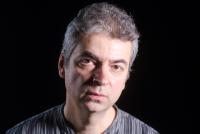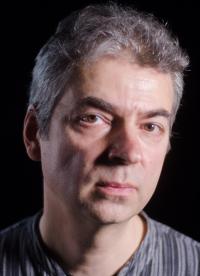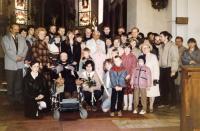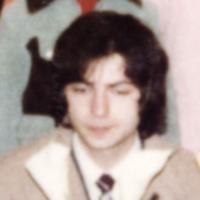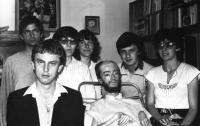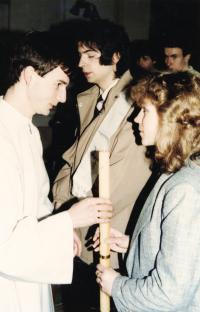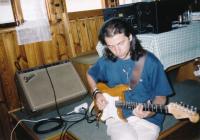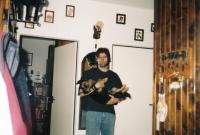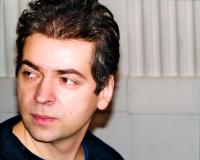The important thing is to maintain inner harmony and to respect others

Stáhnout obrázek
Jan Horníček was born on 24 November 1963 in Šumperk. His father, a blacksmith and foreman at the Jesan factory, and his mother, a teacher of German, had two other children, daughters eleven and thirteen years his elder, and so they spoilt their youngest child. In the sixth year of primary school Jan Horníček began visiting Julius Varga, nicknamed Julek, a boy suffering from a severe case of dermatomyositis, a disease that mainly affects muscles, which gradually deprived Julek of all motion. The boys got on well together. They played chess, had philosophical discussions, and the the biggest interest they had in common was music. Influenced by Julek and especially by how he had transformed and how his attitude towards his disease-stricken fate had changed following his conversion to Christianity, Jan Horníček decided to be baptised in 1989. That same year he married a girl that his friend had brought to his attention. The witness played the guitar and the piano, and after meeting Josef Hrdlička, who celebrated the Masses he attended in Hoštejn, on his impetus he started playing the organ - an instrument that he had loved since his childhood and that he felt belonged to him. Jan Horníček knew that Julek was under State Security surveillance. The Vargas‘ house was a centre for the dissent in Šumperk, and many people visited, not just from the Christian community. However, Jan did not take part in any anti-regime activities, nor was he asked to do so. He lived aside of the political and social situation. He graduated from the University of Economics in Prague and worked in the food industry for seven years. In the early 1990s he decided to change that, he passed state exams in English and German and completed studies at the Faculty of Arts of Palacký University in Olomouc so that he could become a teacher. He has taught both languages at a secondary technical school in Šumperk since 1992.
